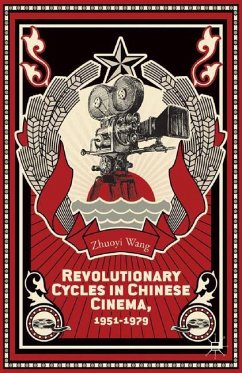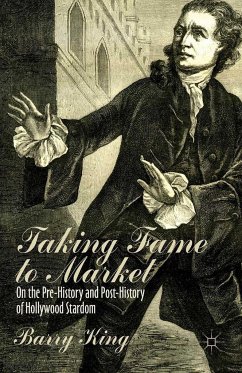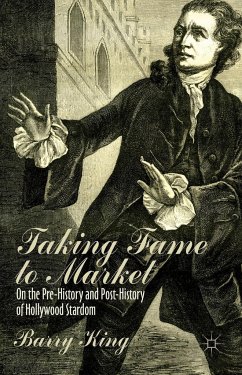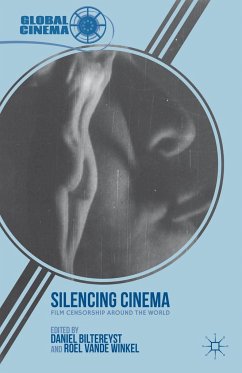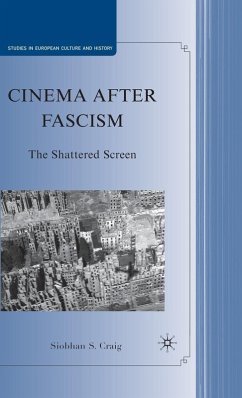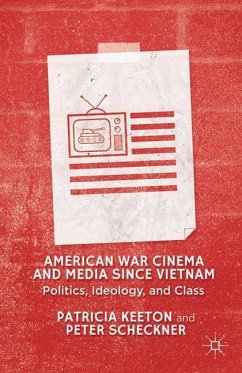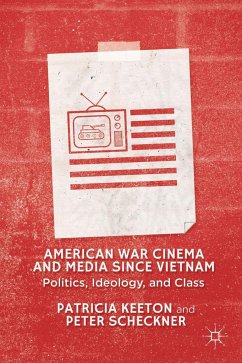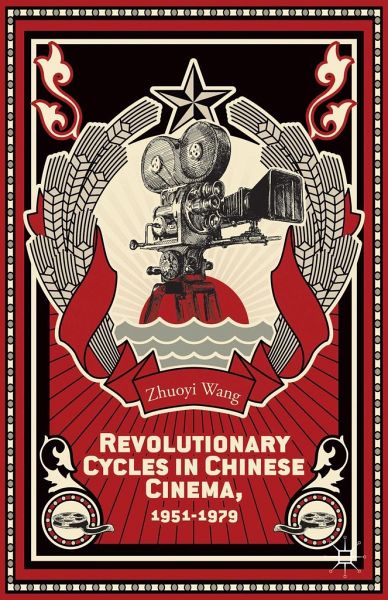
Z. Wang
Gebundenes Buch
Revolutionary Cycles in Chinese Cinema, 1951-1979
Versandkostenfrei!
Versandfertig in 6-10 Tagen
Weitere Ausgaben:

PAYBACK Punkte
34 °P sammeln!





A comprehensive history of how the conflicts and balances of power in the Maoist revolutionary campaigns from 1951 to 1979 complicated and diversified the meanings of films, this book offers a discursive study of the development of early PRC cinema.
Zhuoyi Wang is Assistant Professor in the Department of East Asian Languages and Literatures at Hamilton College, USA.
Produktdetails
- Verlag: Macmillan Education / Palgrave Macmillan US / Springer Palgrave Macmillan
- Artikelnr. des Verlages: 978-1-137-37873-6
- 2014
- Seitenzahl: 274
- Erscheinungstermin: 17. Juli 2014
- Englisch
- Abmessung: 218mm x 140mm x 20mm
- Gewicht: 486g
- ISBN-13: 9781137378736
- ISBN-10: 1137378735
- Artikelnr.: 40580519
Herstellerkennzeichnung
Libri GmbH
Europaallee 1
36244 Bad Hersfeld
gpsr@libri.de
"Revolutionary Cycles in Chinese Cinema provides a detailed, insightful, and vivid guide to the Maoist period. Looking at the conception, production, distribution, and reception of movies from 1949 to 1976, Wang fleshes out Chinese film culture in troubled times. Examining both material circumstances and ideological debates, he shows in fine detail how filmmakers operated, what facilitated their work, and which obstacles they faced. This book is indispensable reading for those interested in the interaction between film and politics and in the power of culture in times of adversity." - Yomi Braester, University of Washington, USA
"A meticulous analysis of micro-level maneuvering by bureaucrats, artists, and critics, Revolutionary
"A meticulous analysis of micro-level maneuvering by bureaucrats, artists, and critics, Revolutionary
Mehr anzeigen
Cycles in Chinese Cinema demonstrates that Chinese socialist revolution was never a unilinear teleological progression but rather a rapid succession of cycles marked by disruptions and assumptions of order with consequences oftentimes beyond anybody's anticipation and control. Wang is commended for probing beneath the deceptive surface of revolutionary rhetoric and revealing quandaries and ruptures that repeatedly compromised revolutionary and artistic goals. " - Yingjin Zhang, Professor of Literature, University of California, San Diego, USA and author of Cinema, Space, and Polylocality in a Globalizing China (2010).
"This concise and incisive book makes an important intervention into the study of Chinese film history. . . Rather than focusing on the films alone or the policies and production practices that shape them, Wang draws on Rick Altman's insights about film genres to emphasize what he calls a 'user-centred' approach. He examines how different social and political groups use films for their own purposes, and how this shapes both their production and reception. The result is not only a livelier and more engaging picture of
Chinese revolutionary era film history but also a model for conducting this new kind of film history. . . [It] is exemplary and merits wide attention." - Viewfinder
"Wang is to be commended for making a daring move into uncharted territory and providing a much-needed comprehensive history of Chinese cinema during the Mao era. He has made an important intervention and expanded our vocabulary in discussing the production, distribution, and reception of films that are different from and yet similar to those produced in a capitalist system." - Modern Chinese Literature and Culture
"This concise and incisive book makes an important intervention into the study of Chinese film history. . . Rather than focusing on the films alone or the policies and production practices that shape them, Wang draws on Rick Altman's insights about film genres to emphasize what he calls a 'user-centred' approach. He examines how different social and political groups use films for their own purposes, and how this shapes both their production and reception. The result is not only a livelier and more engaging picture of
Chinese revolutionary era film history but also a model for conducting this new kind of film history. . . [It] is exemplary and merits wide attention." - Viewfinder
"Wang is to be commended for making a daring move into uncharted territory and providing a much-needed comprehensive history of Chinese cinema during the Mao era. He has made an important intervention and expanded our vocabulary in discussing the production, distribution, and reception of films that are different from and yet similar to those produced in a capitalist system." - Modern Chinese Literature and Culture
Schließen
Für dieses Produkt wurde noch keine Bewertung abgegeben. Wir würden uns sehr freuen, wenn du die erste Bewertung schreibst!
Eine Bewertung schreiben
Eine Bewertung schreiben
Andere Kunden interessierten sich für




